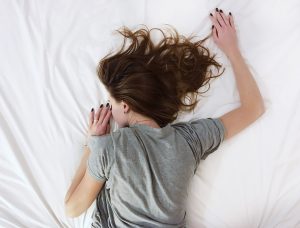The quality of sleep at night is a fundamental element for the psycho-physical well-being of the organism. Losses in terms of hours of sleep and even more so poor sleep quality, in fact, not only cause serious repercussions on the individual's quality of life and health, but are also linked to certain pathologies, including eye diseases such as dry eye syndrome (DED- dry eye desease https://www.oculistaitaliano.it/articoli/focus-sul-dry-eye/) which in turn is related to the circadian cycle, i.e. the sleep-wake rhythm.
In general, sleep disorders are linked to a higher mortality rate, more traffic accidents and a loss of concentration in performing daily activities. The pathological or clinical conditions most frequently associated with poor sleep quality include:
-Diabetes
-Hypertension
-Obesity
-Psychic disorders
-Depression
-Ageing
-Menopause
-Anxiety
-DED
With reference to the latter pathology, in recent years many researchers have focused their research on treating sleep disorders as well as the subject's entire psychological profile as part of the treatment for DED. This is because various clinical evidences have shown that Treating the mental profile of the patient with DED, e.g. in the case of individuals suffering from anxiety or depression, can help improve sleep quality.
What is the association between DED and sleep?
The visual apparatus plays a fundamental role in the sleep-wake cycle. In fact, certain intrinsically photosensitive retinal nerve cells (ganglion cells), together with melanopsin (retinal protein) play a crucial role in controlling the circadian clock. In the presence of ocular pathologies, such as DED, glaucoma or cataracts, retinal photoreception and absorbed light transmission are altered causing disturbances in the sleep-wake rhythm and thus in sleep quality. These assertions are further confirmed in a survey of 1,000 subjects, 18% of whom were suffering from DED and just under half of whom complained of sleep-related disorders as well as an increased susceptibility to anxiety and depressive states.
Further investigations conducted on the eyes and tear film of DED patients suggested that they exhibit more inflammatory processes during sleep than healthy subjects. In fact, subjects with DED have a higher prevalence of obstructive sleep apnoea.
In conclusion, sleep disorders as well as DED are increasingly important issues nowadays as they are closely linked to some common risk factors such as stress or excessive use of digital devices. According to some researchers, ophthalmologists should therefore bear in mind that some DED sufferers may also suffer from sleep disorders, which further aggravate the subject's mental and physical state. Therefore, a multidisciplinary and cross-disciplinary approach including consultation with ophthalmologists, Doctors experts in disorders of sleep and psychotherapists could be a valid approach for the management of the patient suffering from dry eye syndrome.
Source
Ayaki M et al. Sleep Disorders are a Prevalent and Serious Comorbidity in Dry Eye. Invest Ophthalmol Vis Sci. 2018;59(14): DES143-DES150
Dr. Carmelo Chines
Direttore responsabile

